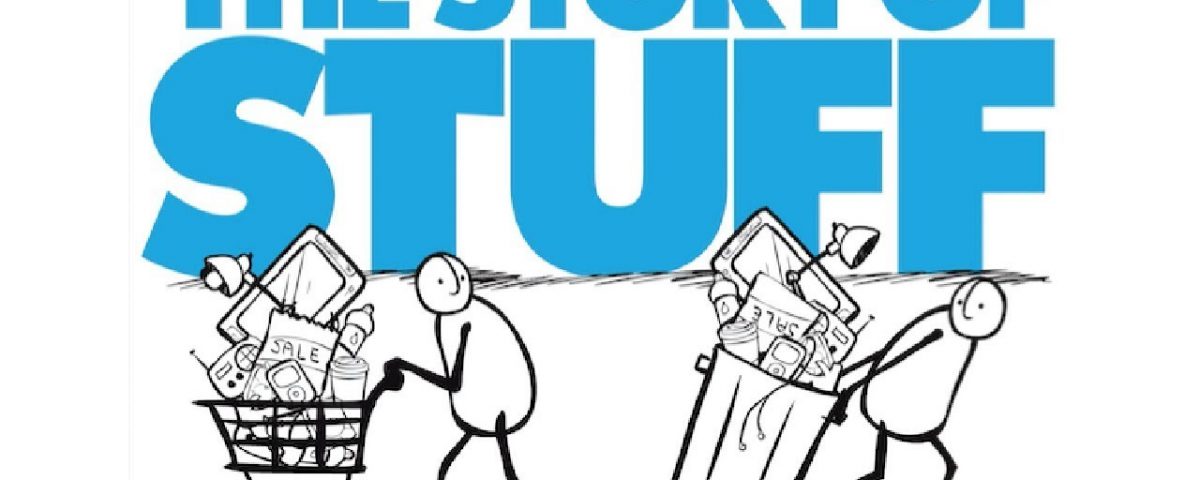The BEST: The Story of Stuff

“The Story of Stuff” by Annie Leonard
Reviewed by Chaim Strauchler
Summary: “The Story of Stuff” (2007) is a 21 minute animated documentary about the lifecycle of material goods. It argues for replacing a linear consumption system with a circular system to preserve earth’s finite resources. In the first three years following its release the documentary had been translated into 15 languages and was viewed by over 12 million people.
Why this is the BEST: Environmentalism is often politicized in a way that sets traditionalists against progressives with environmentalism pegged to the progressive side. The “Story of Stuff” simplifies the environmental argument, cutting through this bifurcation. It presents the spiritual price of modern consumerism in a way which parallels the religious argument against materialism. Quoting from economist Victor Lebow, it explains why the modern economy quickly consumes and discards so much stuff:
Our enormously productive economy… demands that we make consumption our way of life, that we convert the buying and use of goods into rituals, that we seek our spiritual satisfaction, our ego satisfaction, in consumption… we need things consumed, burned up, replaced and discarded at an ever-accelerating rate.
For the religious person, consumerism is rarely perceived as a threat, in this way. Yet, how many of our rituals, how much of our spiritual satisfaction, what magnitude of our community’s self-image involves consumption and not higher aspirations?
“The Story of Stuff,” like much of the environmental movement, faces the challenge of offering a competing vision of the good to that offered by Lebow. Yet, it fails to deliver. The suggestion of a circular consumption system is presented too quickly without sufficient detail or any means for spiritual or psychological satisfaction whatsoever.
The problem might be summarized in the words of Alasdair MacIntyre, “Notions of desert [meaning, meriting reward] and of honor [have] become detached from the context in which they were originally at home. Honor becomes nothing more than a badge of aristocratic status, and status itself, tied as it is now so securely to property, has very little to do with desert” (After Virtue, 232). If only religion could provide an alternative source for desert and honor to dislodge property from its preeminent position.
Click here to read about “The BEST” and to see the index of all columns in this series.
[Published on August 14, 2020]
